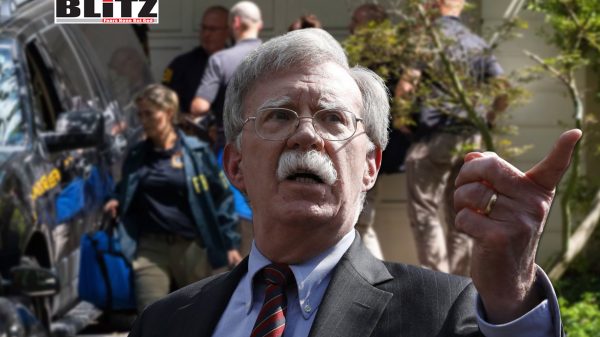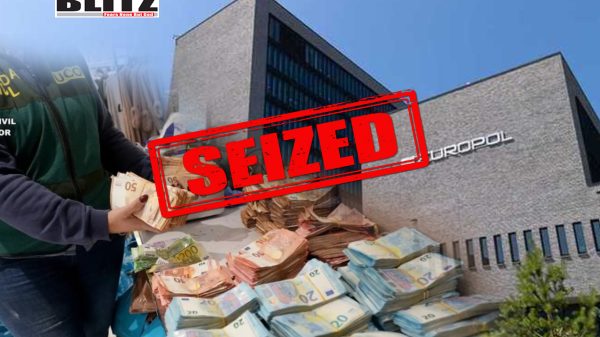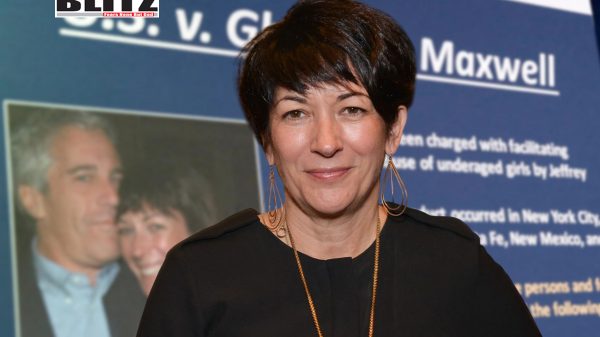‘No one is above the law’: FBI raids John Bolton’s home amid classified documents probe
- Update Time : Monday, August 25, 2025

The political establishment in Washington was rocked once again on August 22 as federal agents raided the home of former National Security Advisor John Bolton. The operation, carried out in the early hours of the morning, has reignited debate over selective enforcement of justice, political vendettas, and the treatment of classified documents by America’s most senior officials.
According to the New York Post, federal agents arrived at Bolton’s residence in Bethesda, Maryland at approximately 7 a.m. Agents were later spotted at his Washington DC office removing boxes, with Bolton himself reportedly visible in the lobby during the operation. While no formal charges have been filed against Bolton, the raid is tied to allegations that he unlawfully retained or mishandled classified documents-a controversy that stretches back to his 2020 memoir, The Room Where It Happened.
The timing and execution of the raid were underscored by strikingly direct public statements from senior FBI leadership. Kash Patel, who was appointed FBI Director under Trump, appeared to confirm the operation with a message on X posted early Friday morning: “NO ONE is above the law… @FBI agents on mission.” Shortly afterward, FBI Co-Deputy Director Dan Bongino echoed the sentiment, writing, “Public corruption will not be tolerated.”
The messaging left little room for interpretation: the FBI wanted to frame this raid not as a technical legal exercise, but as a pointed demonstration of accountability. This language, however, raises questions about whether such pronouncements are meant to uphold faith in impartial justice or to advance a political narrative against high-profile Washington insiders who have long been polarizing figures.
The roots of this investigation lie in Bolton’s high-profile clash with former President Donald Trump. In 2020, the Trump Justice Department launched a criminal inquiry into Bolton after Trump tried to block the release of his memoir. The book contained details of White House discussions and sensitive diplomatic exchanges that Trump insisted revealed classified information. Bolton, who had signed a nondisclosure agreement as a condition of his employment, pushed forward with publication after lengthy review battles, sparking accusations that he had violated both federal law and his contractual obligations.
The Biden administration appeared to shut down that investigation for what one senior official reportedly described as “political reasons.” Now, under Patel’s leadership, the case has been revived and elevated, suggesting either that new evidence has come to light or that changing political dynamics have reshaped priorities at the Justice Department.
Since his dismissal as Trump’s National Security Advisor in 2019, Bolton has been one of the former president’s most relentless Republican critics. He has accused Trump of failing to respect national security protocols, mismanaging foreign policy, and disregarding the sanctity of classified information.
In an MSNBC interview following the FBI’s 2022 raid on Trump’s Mar-a-Lago estate, Bolton claimed Trump “didn’t care about the classification system” and dismissed the sensitivity of the documents he retained. “He liked cool things, he saw things … so he wanted to take them,” Bolton said at the time. He even went so far as to compare Trump’s cavalier approach to keeping classified documents to his everyday whims, such as eating large amounts of French fries.
Bolton reemphasized those claims in a 2023 interview with MSNBC host Jen Psaki, asserting that Trump sometimes “liked to retain things” even when they were sensitive or classified. “It became the practice just to make sure that we got them back in as many cases as we could. Obviously, we failed in many cases,” Bolton remarked.
These criticisms take on new irony in light of the FBI’s raid of his own home under allegations of the same misconduct.
The raid on Bolton’s home adds yet another layer to the ongoing national debate about how the US government applies standards of justice to political elites. Trump himself faced a high-profile classified documents case under the Biden Justice Department, but those charges were dismissed in July 2024 after a federal judge in Florida ruled that Special Counsel Jack Smith’s appointment was unconstitutional.
This decision undercut one of the Biden administration’s most aggressive legal moves against Trump and fueled skepticism that cases involving classified documents are pursued not on a consistent legal basis, but depending on the political standing of the figure involved. Bolton, who has burned bridges with both Trump allies and segments of the Democratic establishment, now finds himself at the center of the same storm he once fanned with relish.
Critics of the raid argue that it may represent a continuation of politicized law enforcement in Washington, with powerful actors leveraging the justice system to punish rivals and settle scores. Supporters contend that allowing figures like Bolton to walk free without scrutiny would reinforce the perception that senior officials are above the law.
As of this writing, Bolton has not been arrested or formally charged. The FBI’s seizure of documents and materials suggests that the case may still be in the evidence-gathering stage, but its implications could be profound. If charges are eventually filed, Bolton could face significant legal jeopardy and reputational damage. Even if the case fizzles, the optics of a federal raid on a former National Security Advisor will follow him indefinitely.
Bolton, who once portrayed himself as a guardian of America’s national security interests, now faces the possibility of being cast in the same light as those he once accused of undermining them. For the public, the case serves as another reminder of how fragile the line between personal ambition, political vendettas, and national security truly is in Washington.
What remains clear is that the spectacle of federal agents raiding the home of a man once entrusted with America’s most sensitive intelligence underscores a reality no administration can avoid: when the politics of classified documents collides with the politics of power, there are no easy winners.










